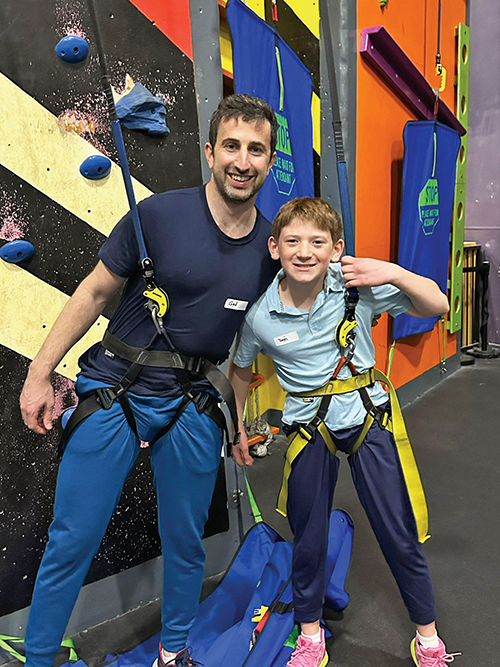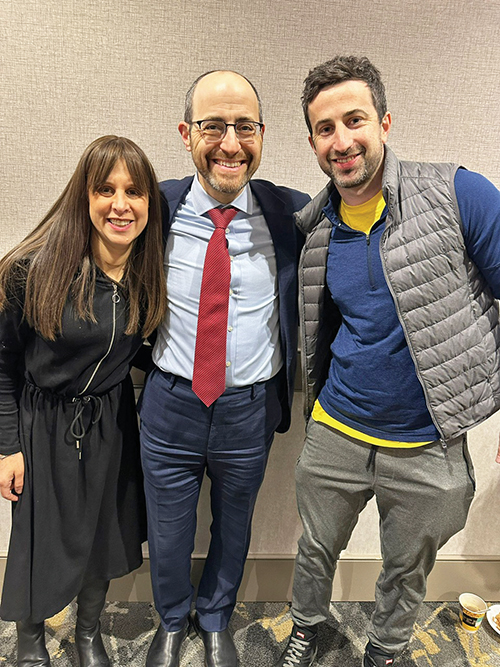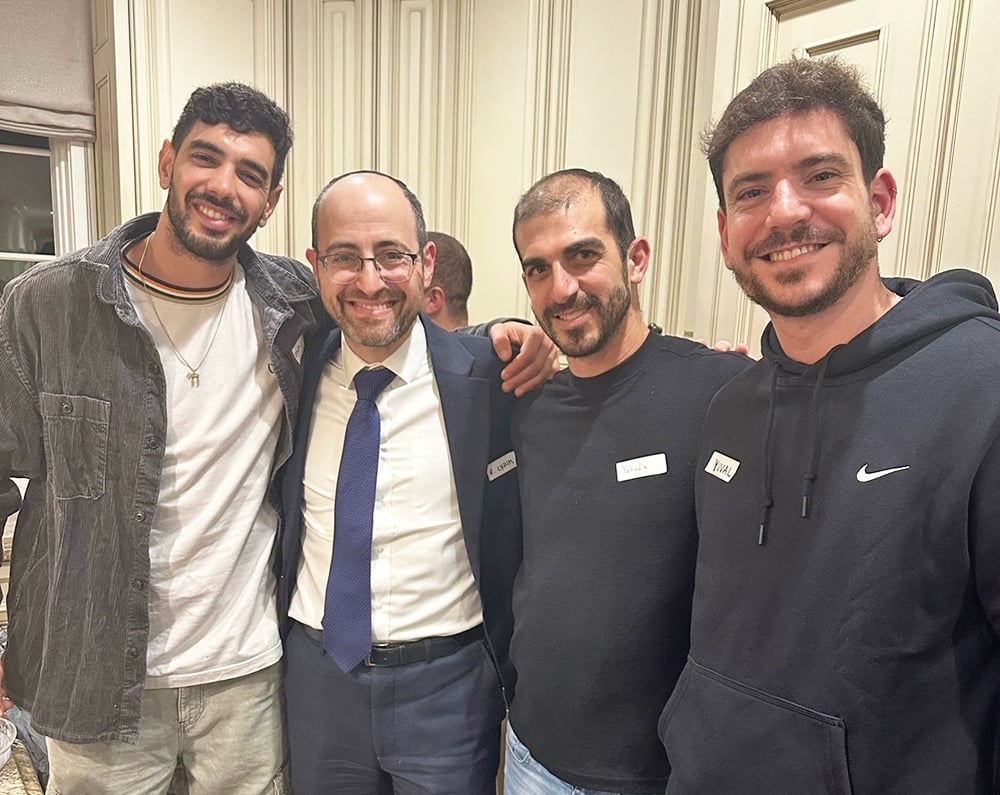
October 15, 2023 was the date. Congregation Rinat Yisrael had prepared for months to welcome a unit of Israeli soldiers for the first time to Teaneck, through the Peace of Mind program. On that October day, our soldiers were unavailable. They were busy defending our people in Otef Aza and beyond. They would continue to do so for months. Expressing our appreciation, we sent Shabbat gifts to the soldiers’ families with the following note:
We don’t know each other, yet. But you are very much on our minds. Your [son, husband, father, boyfriend] was planning to visit our community in Teaneck with his Ma’aglan unit, as part of the Peace of Mind program. Unfortunately, that did not happen. While we could not spend last week together, he is in our thoughts and tefillot—as he is in yours. We hope that this little token will brighten your Shabbat and help you to remember that he and you are not forgotten. We have a date in Teaneck and look forward to growing our family and community kesher.
During the long year that followed, we tracked our soldiers from afar—as they fought heroically in Gaza and Lebanon. We repeatedly attempted to reschedule our “date,” but to no avail.
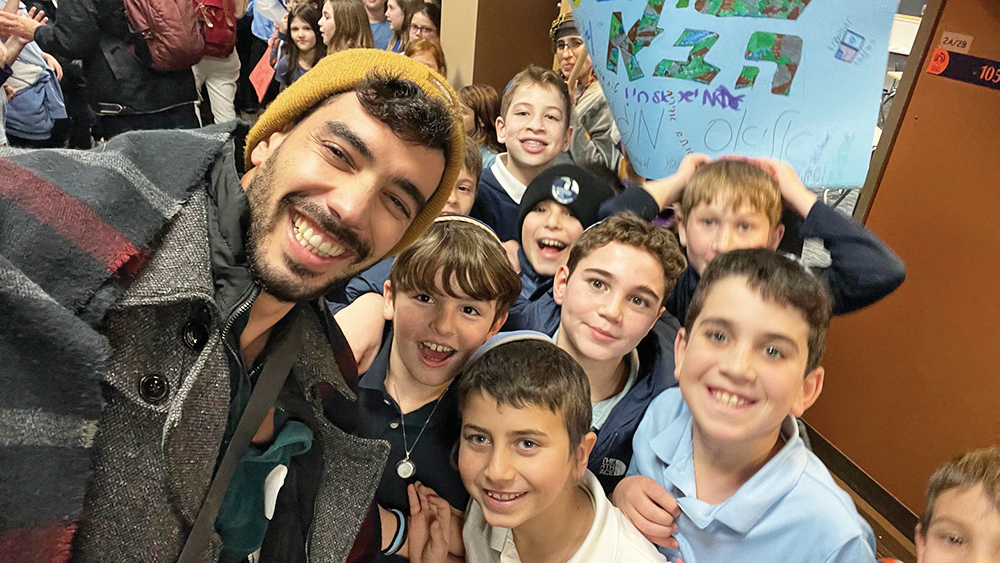
We finally succeeded! This past week, December 8-15, 2024, Rinat hosted 18 chayalim from the Ma’aglan brigade. We gave them time and created a space for them to process their combat experiences with two talented Israeli therapists, Yair and Stav. In the evenings, we opened our homes to them. We gave them the hero treatment—hanging out together at the Vogels, taking them to Broadway, climbing together in a local gym, and enjoying Jewish heritage night with the New Jersey Devils. Shabbat was the grand finale. We shared a beautiful Shabbat dinner and community Friday night tish with divrei Torah, songs, stories and reflections. On Shabbat morning, our soldiers—secular and dati—were inspired by our tefillot for medinat Yisrael, Tzahal and the chatufim. As these heroes stood around our baal tefillah, there was barely a dry eye in the room.
Run by the Metiv Israel Psycho-Trauma Center in Jerusalem, Peace of Mind strengthens the soldiers’ emotional and mental well-being, allowing for a healthier transition from military to civilian life. As explained by Metiv’s Director of Partnerships Chaim Landau, there is a lot of space between PTSD and hakol beseder. Soldiers experience a lot of trauma. The opportunity to work through issues as a unit has been life-transforming for many.
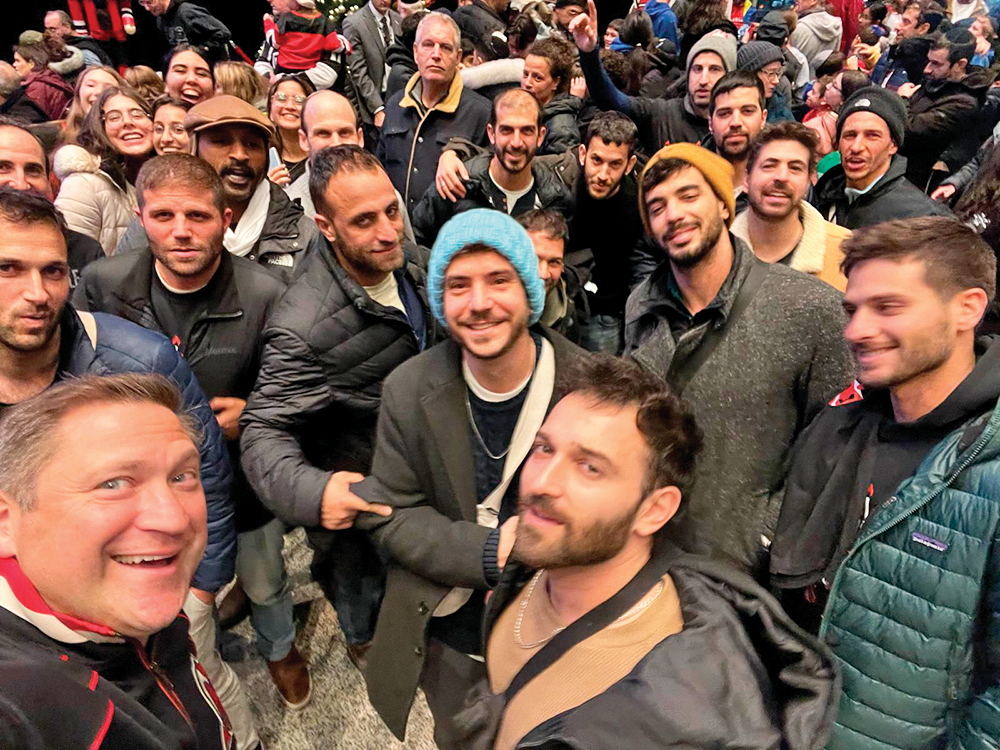
The eight-day workshop that shuls host is the core of the program and includes intensive full-day group sessions. The distance from Israel and the loving environment created by our communities play a crucial role in creating a safe, quiet and supportive environment. Rabbi Lord Jonathan Sacks, zt”l, said about this program, “These are the soldiers who give Israel ‘Peace of Mind.’ So friends, it is our duty to help them find their peace of mind.”
On Shabbat morning, I reflected on the program and Rabbi Sacks’ words with a question: What is Peace of Mind: shelemut hanefesh? How do we discover it ourselves? How do we help others find it?
While we often assume that peace is the absence of conflict, the Gemara (Shabbat 33B) suggests that there is more to it.
You are all familiar with this Gemara—although you may not know it. It is the story about Rabbi Shimon Bar Yochai and his son and their 12 years hiding in a cave. However, in telling the story, we usually conclude when the father and son leave the cave and they witness a simple Jew carrying two myrtle twigs. However, it’s the part of the story that no one mentions, which can help us resolve our question regarding peace of mind. You see, 12 years in a cave takes a physical and emotional toll on a person.
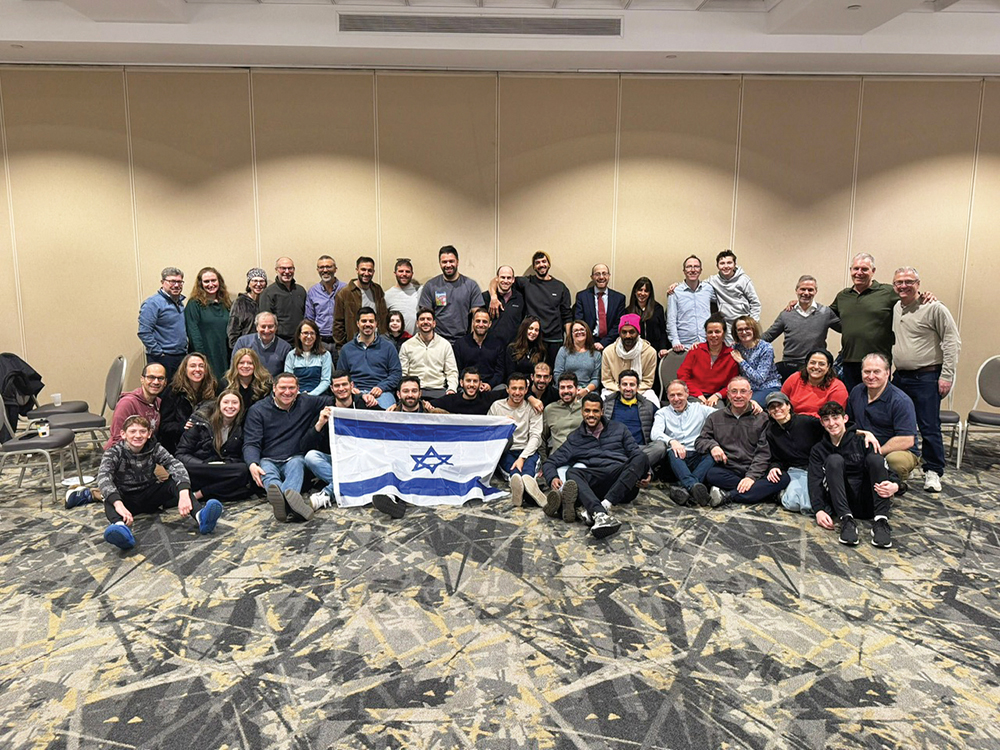
Rabbi Pinchas Ben Yair, Rabbi Shimon Bar Yochai’s son-in-law, brought him to a bathhouse to wash him after the cave ordeal. Upon seeing his wounds and cracked skin, Rabbi Pinchas began to cry. Rabbi Shimon asked him to rejoice rather than to cry. Had it not been for his suffering, he would not have gained the prominence in Torah that he did. Before he entered the cave, he would ask Rabbi Pinchas ben Yair a question and Rabbi Pinchas would answer him with 12 solutions. Upon his departure, Rabbi Pinchas would ask Rabbi Shimon a question, and Rabbi Shimon would answer with 24 solutions.
Rabbi Shimon bar Yochai teaches us, whether we are civilians or soldiers, to see our suffering as essential. An appreciation for shelimut sometimes requires its opposite—like you need a really hard week to really enjoy a good Shabbat. Our wounds make us who we are.
Yet, Rabbi Shimon bar Yochai went further. Learning from the word “shaleim” in regard to Yaakov Avinu, Rabbi Shimon bar Yochai reflected, “Since I experienced a miracle, I must go and repair something.” Rashi on the Gemara explains that the word “vayichan”—in the pasuk—does not mean simply to camp but to be gracious—to offer chen to the world.
Isaiah Berlin famously developed two concepts of liberty: freedom from oppression and freedom to create. Similarly, we can describe two concepts of peace: peace from and peace to. The Gemara teaches us about two forms of peace. Peace is the opposite of war, and peace is the means for good. We can experience peace from conflict and terror, and we can experience peace that allows us to appreciate wholeness and to do something with that wholeness.
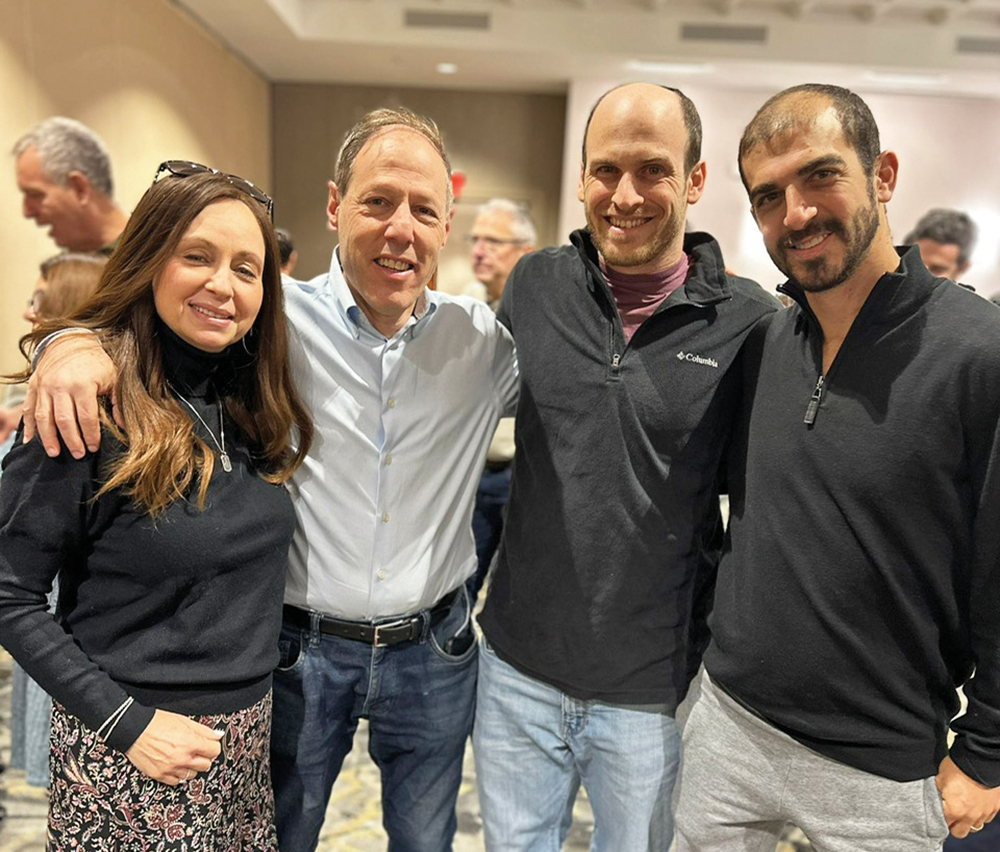
In America, we think of the IDF as a single entity. In fact, within Israeli society, every brigade has a distinct reputation and culture. At a shalom zachor here in Teaneck, I heard from a Golani soldier from Rinat about the difference between Golani and Tzanchim. Tzanchanim go around an obstacle and achieve their objective. Golani go through the obstacle and achieve their objective. Ma’aglan from what I understand is tzanhanim plus—this stereotype on steroids. Ma’aglan goes around the obstacle so stealthfully that you don’t know who they are or what they did. Ma’aglan is a commando unit known for being quiet and smart. Israel calls upon Ma’aglan to do impossible, amazing and secret things. I was part of a conversation this week with one of our unit members. When asked where the active Ma’agaln units are right now, he answered: Syria.
Yet in appreciating this week of shelimut, it is not enough to celebrate the heroism of these men on the battlefield. Like Yaakov and Rabbi Shimon Bar Yochai, we must see the opportunity in the peace dawning around us. This week, I got to know some of our unit members and to learn about their work within Israeli society. They give me so much hope for the vayichan et p’nei hair—the peace to appreciate wholeness and to do something with it.
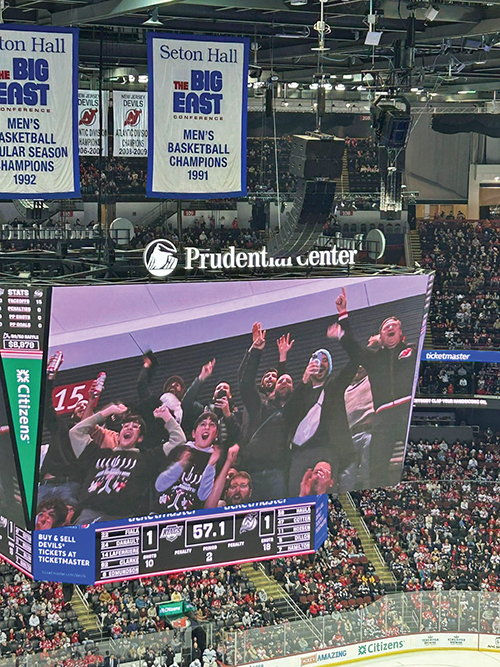
Itai—in civilian life—runs joint youth group seminars for tzofim and bnei akiva. He works with these high school students on how to acknowledge disagreement while learning from one another. Amit owns a café in Jerusalem near Kikar Tzion where, in addition to ordering a coffee and a cookie, you can order a conversation. He hosts workshops to help people talk and understand themselves and their relationships. This week has given me hope not just for the peace of war’s cessation but for the peace of a gracious society that marshals peace for the good of humanity.
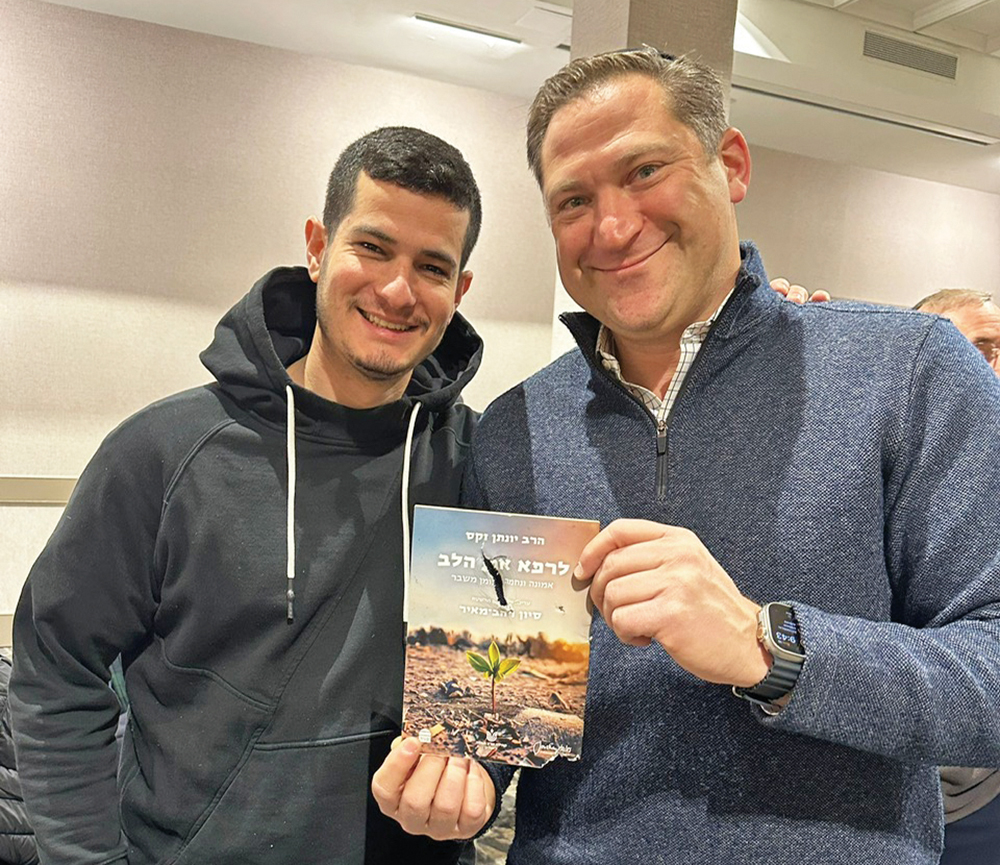
Yair—one of the therapists for Metiv—commented to me after the Friday night tish how special his and the soldiers’ experiences at Rinat had been. He emphasized the spirit not just of generosity—but also of volunteerism. He emphasized the power of community to modestly support one another and to bring the therapists and the soldiers into that communal embrace. This, too, is shelimut. Each of our Bergen County communities has what to offer Israel and the world in a Torah embrace based upon yirat shamayim and ahavat Hashem.
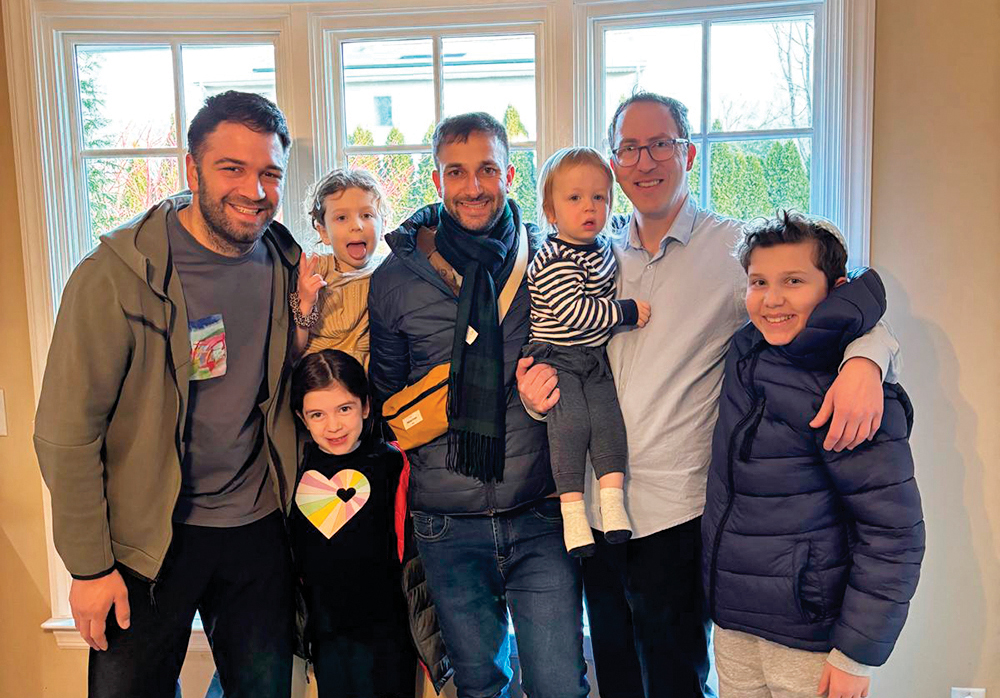
It has been an impossible year; it has been an impossible 76 years; it has been an impossible 2,000 years (since Rabbi Shimon Bar Yochai); it has been an impossible 3,500 years (since Yaakov Avinu). Yet, for all our struggles with angels and with men—we are not simply Yisrael—we are Yisrael—shalem b’gufo, shalem b’mamono, shalem b’torato—Israel complete in body and soul. May we soon witness the spiritual descendants of Rabbi Shimon Bar Yochai depart from the terrible caves and tunnels in which they are held captive. May we soon experience true peace of mind—the positive peace of wholeness, graciousness and volunteerism.
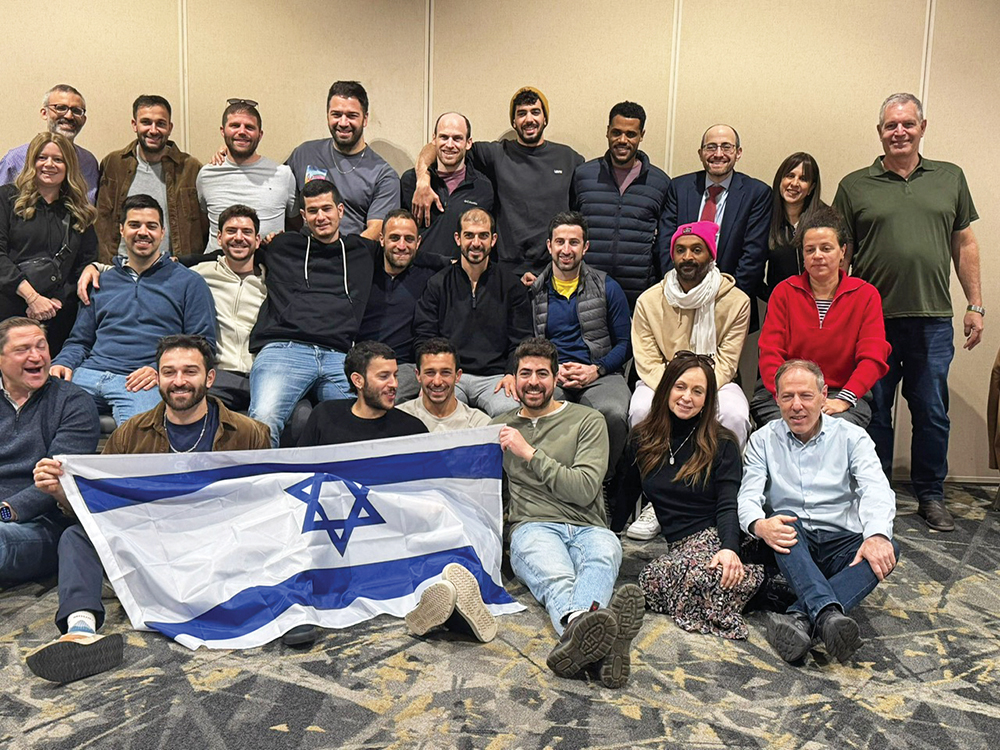
If your community would like to learn more about our Peace of Mind experience at Rinat, please contact me at rabbistrauchler@rinat.org.
Rabbi Strauchler is the rabbi at Congregation Rinat Yisrael.
